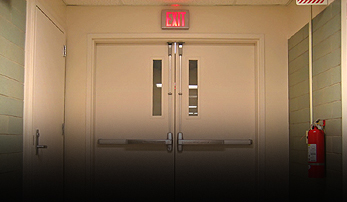Beyond Classrooms Navigating Pivotal Reforms and Emerging Opportunities in ghana education news, Fue
- Beyond Classrooms: Navigating Pivotal Reforms and Emerging Opportunities in ghana education news, Fueling National Advancement.
- Curriculum Reform and its Impact
- The Role of Technology in Modernizing Education
- Addressing Access and Equity in Education
- Teacher Development and Training Initiatives
- The Impact of Private Sector Involvement
- Financing Education: Challenges and Opportunities
- The Future of Ghana’s Education System
Beyond Classrooms: Navigating Pivotal Reforms and Emerging Opportunities in ghana education news, Fueling National Advancement.
The landscape of ghana education news is currently undergoing a period of significant transformation, driven by governmental reforms, increasing access to technology, and a growing emphasis on skills-based learning. These changes are aimed at improving the quality of education, equipping students with the tools they need to succeed in the 21st-century workforce, and bolstering national development. From curriculum revisions to infrastructure investments and teacher training programs, the educational sector in Ghana is witnessing dynamic shifts with far-reaching implications for future generations. Understanding these developments is crucial for stakeholders, parents, and students alike.
Curriculum Reform and its Impact
Recent years have seen Ghana implement substantial changes to its national curriculum, moving away from rote memorization towards a more competency-based approach. This reform aims to foster critical thinking, problem-solving skills, and creativity amongst students. The new curriculum emphasizes practical application of knowledge and seeks to align educational outcomes with the needs of the labor market. The shift necessitates updated teaching methodologies and resources, presenting both challenges and opportunities for educators across the nation.
The implementation hasn’t been without hurdles, including adequate teacher training and resource allocation. However, the long-term goal is a more relevant and impactful educational experience for all Ghanaian students. The curriculum also integrates more local content, aiming to preserve and promote Ghanaian culture and heritage.
The Role of Technology in Modernizing Education
Technology is playing an increasingly vital role in transforming education in Ghana. The introduction of e-learning platforms, digital textbooks, and online resources is expanding access to educational materials, especially in underserved rural communities. Initiatives aimed at providing computers and internet access to schools are crucial for bridging the digital divide. However, ensuring equitable access and building the digital literacy of both teachers and students remains a key challenge.
Furthermore, the use of technology enhances personalized learning opportunities and enables educators to track student progress more effectively. The integration of technology also prepares students for future careers in a rapidly evolving digital world, where technology proficiency is paramount. Successful implementation requires sustained investment and ongoing training.
Addressing Access and Equity in Education
Despite significant progress, challenges remain in ensuring equitable access to quality education for all Ghanaian children. Geographical disparities, socioeconomic factors, and gender imbalances continue to hinder educational opportunities for many. Targeted interventions are needed to support students from disadvantaged backgrounds and address barriers to access, such as school fees, transportation costs, and cultural norms.
Initiatives like the Free Senior High School policy have expanded access to secondary education, but sustaining quality and addressing infrastructure limitations remain critical concerns. Strengthening partnerships between government, communities, and NGOs is crucial for creating a more inclusive and equitable education system.
| Greater Accra | 550,000 | 1:30 |
| Ashanti | 480,000 | 1:35 |
| Eastern | 390,000 | 1:40 |
| Western | 320,000 | 1:45 |
Teacher Development and Training Initiatives
Recognizing the pivotal role of teachers in shaping future generations, Ghana has prioritized investments in teacher development and training. The introduction of continuous professional development programs aims to enhance pedagogical skills, upgrade subject matter knowledge, and promote innovative teaching methods. These programs are essential for equipping teachers with the tools they need to effectively implement the new curriculum.
However, challenges such as limited funding, inadequate infrastructure, and uneven distribution of qualified teachers remain significant. Providing ongoing support and mentorship opportunities for teachers is crucial for sustaining improvements in teaching quality and promoting a culture of continuous learning.
The Impact of Private Sector Involvement
The private sector plays an increasingly important role in Ghana’s education landscape. Private schools and educational institutions offer alternative learning environments and contribute to diversifying educational opportunities. Public-private partnerships are also emerging as a way to address infrastructure gaps and improve access to quality education. These partnerships can leverage the resources and expertise of the private sector to enhance educational outcomes.
However, ensuring quality standards and equitable access in the private education sector remains essential. Regulations and oversight mechanisms are needed to maintain accountability and prevent disparities in educational opportunities. A collaborative approach involving government, private stakeholders, and civil society is crucial for maximizing the benefits of private sector involvement.
- Improved teacher training programs
- Increased funding for educational infrastructure
- Enhanced curriculum development aligned with industry needs
- Greater adoption of technology in classrooms
- Expansion of access to education for marginalized groups
Financing Education: Challenges and Opportunities
Adequate financing is critical for sustaining improvements in Ghana’s education system. While government funding remains the primary source of revenue, exploring innovative financing mechanisms is essential for addressing funding gaps and ensuring long-term financial sustainability. This includes attracting private investment, leveraging donor funding, and exploring public-private partnerships.
Efficient allocation of resources and improved financial management are also crucial for maximizing the impact of investments in education. Transparency and accountability in the use of funds are essential for building public trust and ensuring that resources are used effectively to enhance educational outcomes.
- Strengthen financial management systems.
- Attract private investment in education.
- Explore innovative financing mechanisms.
- Increase government investment in education.
- Enhance donor coordination and support.
The Future of Ghana’s Education System
Looking ahead, the future of Ghana’s education system hinges on continued reform, sustained investment, and strong collaboration among stakeholders. Embracing innovative technologies, fostering a culture of lifelong learning, and promoting equity are crucial for ensuring that all Ghanaian citizens have the opportunity to reach their full potential. A well-educated populace is essential for driving economic growth, promoting social development, and strengthening national competitiveness.
Moreover, aligning educational outcomes with the evolving needs of the labor market is vital for preparing students for future careers. Continuous monitoring and evaluation of educational programs are necessary for identifying areas for improvement and ensuring that the education system remains responsive to the changing needs of society.









Recent Comments